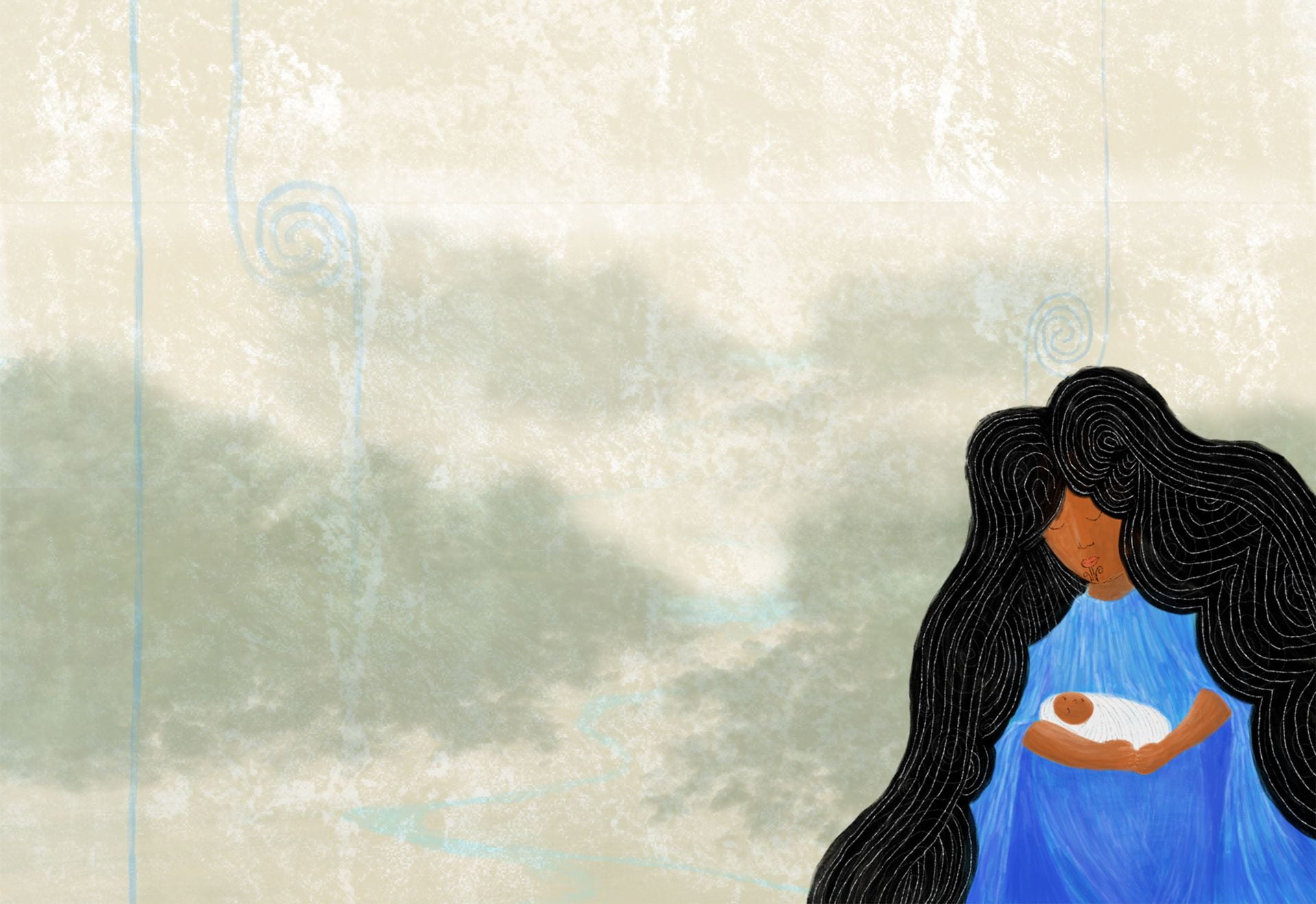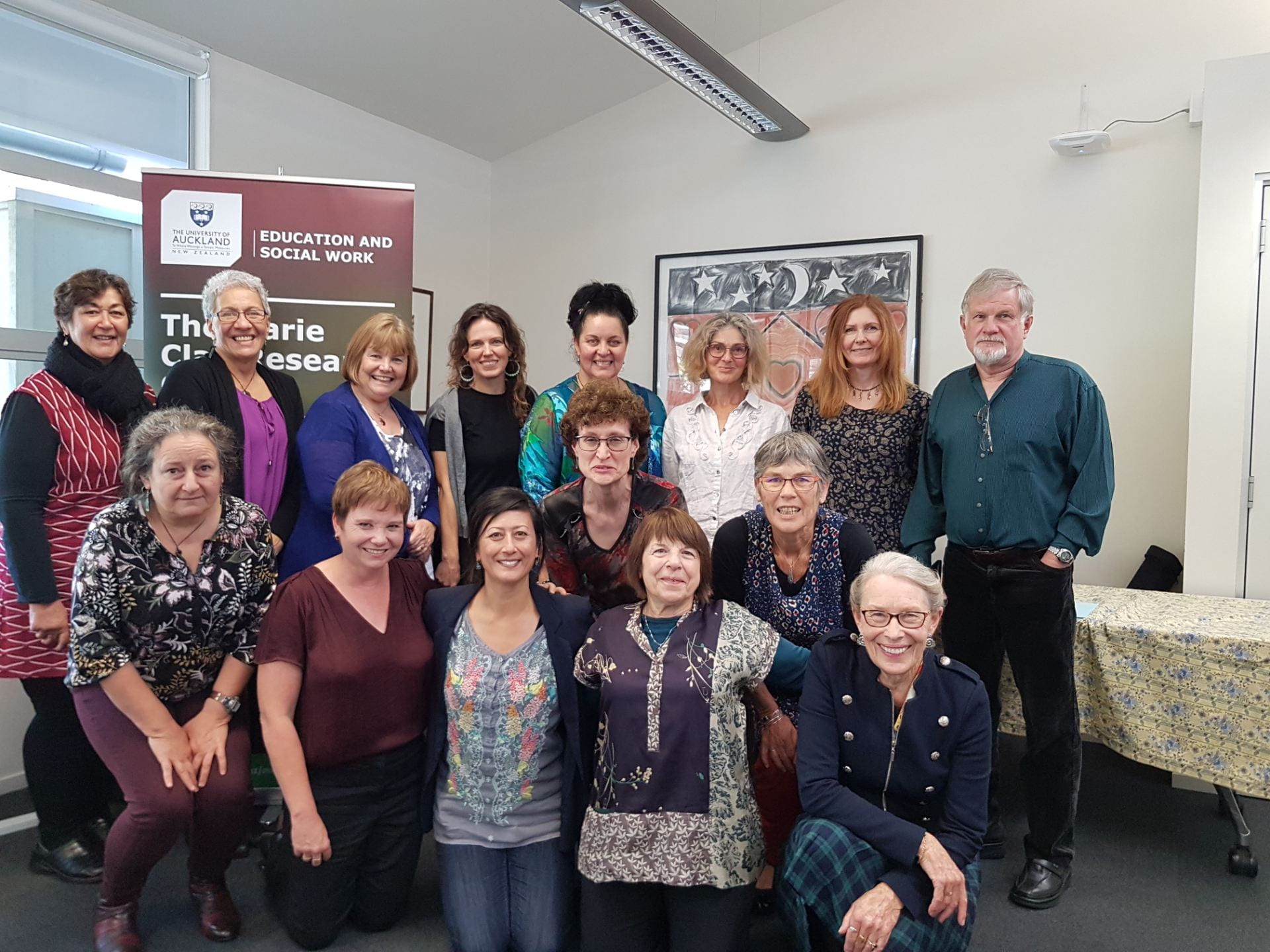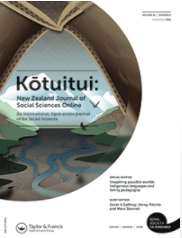Growing a networked research community around the children and families of Aotearoa New Zealand
Funded by Royal Society New Zealand
Catalyst Seeding Grant
2018-2021

Rationale
Babies begin to make sense of the world and express themselves in interaction with their whānau/families from birth. Family interactions shape children’s thinking and learning as they observe, listen, gesture and talk in their home language. Approximately 80% of brain development occurs before age 3. Promoting first languages of children’s homes reduces the inequitable learning paths that span ethnicities, languages, and gender. Through this project, we identified growth indicators of communication across languages in Aotearoa-New Zealand.

About the Project
A collaborative network of international researchers convened to reclaim the narrative in the space of young children and families to honor the sovereignty of Indigenous and heritage languages, lifeways, and learning. The team includes Māori, Pasifika, and Pākehā (white European) researchers and community practitioners from multiple countries. We were confident that by working collectively and widely that we could do better for our youngest tamariki/children than the narrow, subtractive, deficit, remedial views of languages and cultures that has taken hold in the mainstream.
A networked collaboration of national and international early-years and oral-language researchers has been established through funding by the Royal Society New Zealand (RSNZ) Catalyst Seeding. The 12 invited researchers are affiliated with three Aotearoa-New Zealand universities (University of Auckland, University of Waikato, and Victoria University) and three international universities (Macquarie University-Australia, University of Toronto-Canada, and University of Dundee-UK). Our common bond is our commitment to the indigenous or heritage languages and cultures of children within their families and early-childhood environs. Current policies, practice and research are dominated by English-only language and European traditions and values, a deficit approach to diagnosis of difficulties and a readiness approach to school. Our collective research disrupts this restricted perspective and honours the social, communicative and cognitive advantages of bilingual and bicultural knowledge, and ways of knowing. The overarching goal of this collective “thought community” of scholars is to design a programme of research that will shape the critical and neglected space of early infant-toddler communication in ways that are linguistically and culturally sustaining and grounded in Te Titriti o Waitangi and Mātauranga Māori.
The centerpiece of the first-year collaboration was a four-day forum at the University of Auckland (6-9 May 2019) in which all 12 researchers, three post-graduate students, one research associate, and three community members engaged in integrating whānau/family, practitioner and researcher knowledge to envision future possibilities for research that matters for Aotearoa-New Zealand and internationally. Following the Pōwhiri at the Tūtahi Tonu wharenui on the first day, each researcher briefly presented five major understandings and assumptions from their research, followed by discussion.
On Days two and three, the researchers engaged with parents and teachers in two community projects facilitated by Talking Matters (COMET Auckland), which led to vigorous discussion that merged practice, policy and research.
On Day four, we generated plans for our future collaboration, all of which have not only been achieved but exceeded, in spite of Covid-19. (1) A set of five co-authored papers was accepted as a Symposium at the 2020 American Educational Research Association. These papers were uploaded and confirmed as presented, although the physical conference was cancelled. (2) A Special Issue of Kōtuitui: New Zealand Journal of Social Sciences Educationl, which includes four co-authored articles and four commentaries (one per article by leading researchers), published in September 2021. (3) A Symposium of three papers has been submitted for the 2021 New Zealand Association for Research in Education, and (4) ongoing international collaborations have been established in our collective network. One of the international researchers invited network members to contribute manuscripts to a separate special journal issue and another accepted chapters of two New Zealand reearchers in her edited book. Clearly, the collaboration among this previously un-connected group of researchers has escalated publications and fostered ongoing relationships among international and national researchers, which previously did not exist in this area of critical importance in early oral languages.

Key Milestones

Our Work
Below is a list of works that our research team has contributed to.
This special edition of Kotuitui: New Zealand Journal of Social Sciences showcasing the art of Mere Skerrett on the cover can be accessed online here:
Publications
Articles
Gaffney, J. S., Ritchie, J., & Skerrett, M. (Eds.) (2021). Imagining possible worlds with young children, families, and teachers: Sustaining Indigeneous language/s and family pedagogies. Kōtuitui: New Zealand Journal of Social Sciences. https://doi.org/10.1080/1177083X.2021.1958877
Gaffney, J. S., & Ritchie, J. , Skerrett, M., Smith, G. H., Mcfarlane, A. H., Mara, D., & Sleeter, C. (2021). Editorial and Commentaries. Imagining possible worlds with young children, families, and teachers: Sustaining Indigenous languages and family pedagogies [Special Issue]. Kōtuitui: New Zealand Journal of Social Sciences, 16(2), 234-249.https://doi.org/10.1080/1177083X.2021.1958877
(2021).Ēhara tāku toa i te toa takitahi, engari he toa takitini: the power of a collective. Kōtuitui: New Zealand Journal of Social Sciences. https://doi.org/10.1080/1177083X.2021.1920434
(2021). Sustaining Indigenous languages and cultures: Māori medium education in Aotearoa New Zealand and Aboriginal Head Start in Canada. Kōtuitui: New Zealand Journal of Social Sciences. https://doi.org/10.1080/1177083X.2021.1922466
White, A., Stagg Peterson, S., Quigan, E. K. (2022). Young children co-constructing stories with teachers. Early Childhood Folio, 26(2), 13–19. https://doi.org/10.18296/ecf.1110
Chapter
Jacobs, M. M. (2022). Negotiating a place to belong in an Aotearoa New Zealand playgroup. In S. Stagg Peterson & N. Friedrich (Eds.), The role of place and play in young children’s language and literacy (pp. 95-108). University of Toronto Press.
Articles in Progress
Gaffney, J. S., Jacobs, M. M., White, A., Stephenson, J., Eyers, G., & Harvey, N. (in progress). Arcs of meaning in early communication in the language/s of infants and toddlers and their families.
Language Matters: The Fundamental Role of Te Reo Māori for Identity, Agency and Learning in the Early Years.
Conference Presentations
Gaffney, J. S. (2020, April). Imagining possible worlds with young children, families, and teachers: Sustaining language/s and family pedagogies. Chair, Symposium-Critical Perspectives on Early Childhood Education SIG, American Educational Research Association (Virtual), San Francisco, CA. Discussant: Barbara Rogoff.
1. Context Matters: Historical, Political, Pedagogical (Lesley Rameka, Shelley Stagg Peterson, Sheila Degotardi)
2. Primacy of Te Reo Māori in Aotearoa New Zealand (Mere Skerrett, Jenny Ritchie)
3. Family as First Teachers: A Strength-Based Perspective (Mary (Meg) M. Jacobs, Amanda White, Nola Harvey)
4. He mokopuna tatou katoa. We are all mokopuna: Reciprocity in a Parenting Programme to Nurture Oral Language (Emma K. Quigan, Samantha Makoare, Janet S. Gaffney, Rae Si’ilata)
Gaffney, J. S. (2020, November). Symposium-Indigenous languages as cultural taonga: Speaking back to English-language deficit discourses. New Zealand Association for Research in Education. Wellington, New Zealand. Discussant: Lesley Rameka.
1. Language Sovereignty (Mere Skerrett, Jenny Ritchie)
2. Family Pedagogies as Counternarratives to “Language Gap” and “School Readiness” Discourses (Meg M. Jacobs, Nola Harvey)
3. “I Learn So Much from the Parents Too”. Reciprocity and Ako as an Alternative to Parenting Programmes (Emma K. Quigan)



